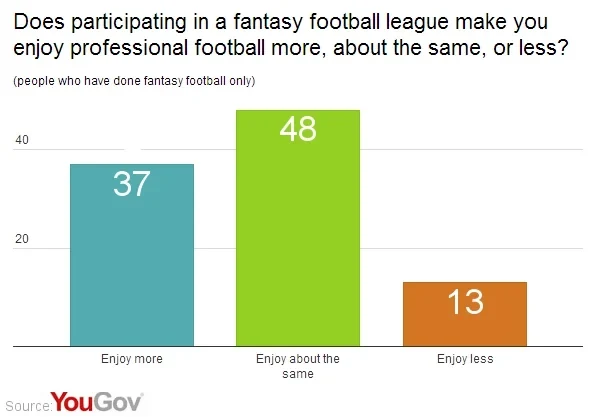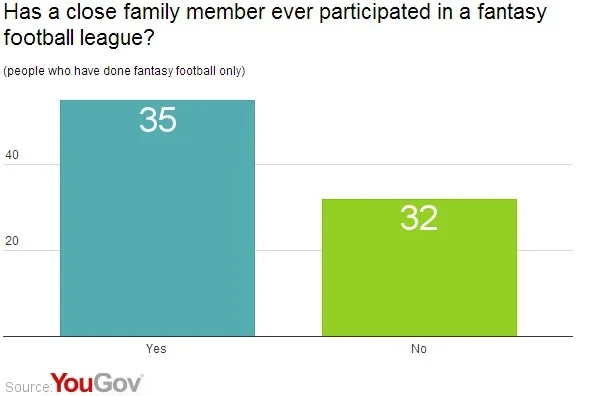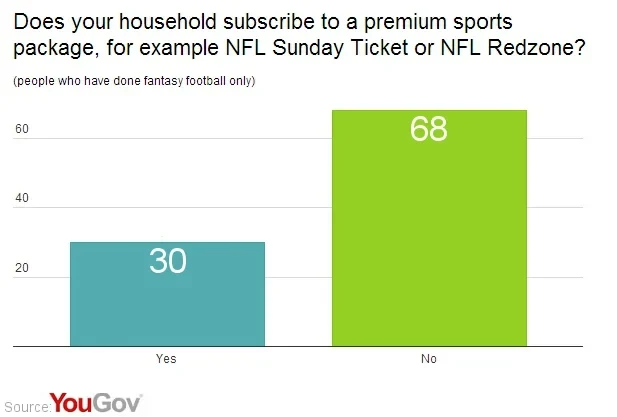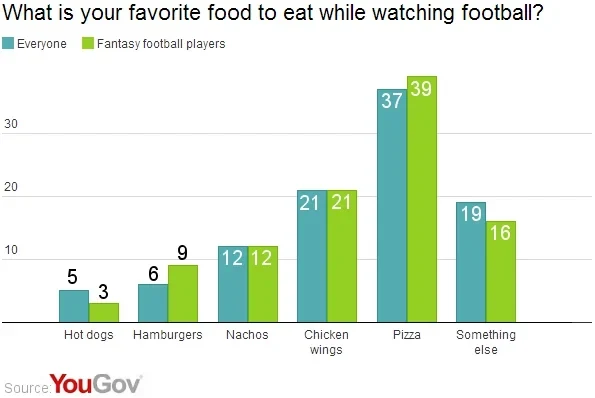Most Americans haven't participated in a fantasy football league, but among those who have just over a third said it added to their enjoyment of the NFL season.
For 50 years, some Americans have been playing fantasy football, following how their imaginary teams, assembled of real players through a draft, fare against other fantasy teams. Each weekend during the football season, the participants use the actions in actual games, and score their team’s performance accordingly. Since 1997, websites have helped fantasy players keep up. The National Football League itself runs a free fantasy football site. So does ESPN, along with many other organizations.
It may be no surprise that according to the latest Economist/YouGov Poll, fantasy football players are mostly men, mostly under 45, and mostly have at least some college education. Men are two and a half times more likely than women to play; the college educated are more than twice as likely as those with only a high school education. Interest in fantasy football is, however, one of the few things these days that crosses party boundaries. Equal percentages of Republicans, Democrats and independents admit to being players.
Overall, 14% of American adults say they have – at some point in their lives – participated in a fantasy football league. One in five says a close family member has. For more than a third of fantasy players, the activity has made then enjoy the game more – though 13% say fantasy football has made professional football less enjoyable. Half say nothing has changed.

For about half the players, the fantasy game takes up less than an hour a week. But 14% spend some time every day on the game. Fantasy football obsessives can be found in most income, education, and age groups.
Fantasy football players consume football. They are five times as likely as non-players to subscribe to a premium sports package, like NFL Sunday Ticket or NFL Redzone. In addition, they live in a fantasy football environment. More than half of players say a close family member has also played fantasy football.


And when the football season ends, fantasy football players are more likely than others to play fantasy baseball. Professional football is more popular than Major League Baseball; the same holds true of the fantasy version. Just 8% say they have ever played fantasy baseball – but 38% of fantasy football players have.
The gap between players and non-players disappears when it comes to food: for both, pizza is the number one food to eat while watching football. Chicken wings and nachos are next.









